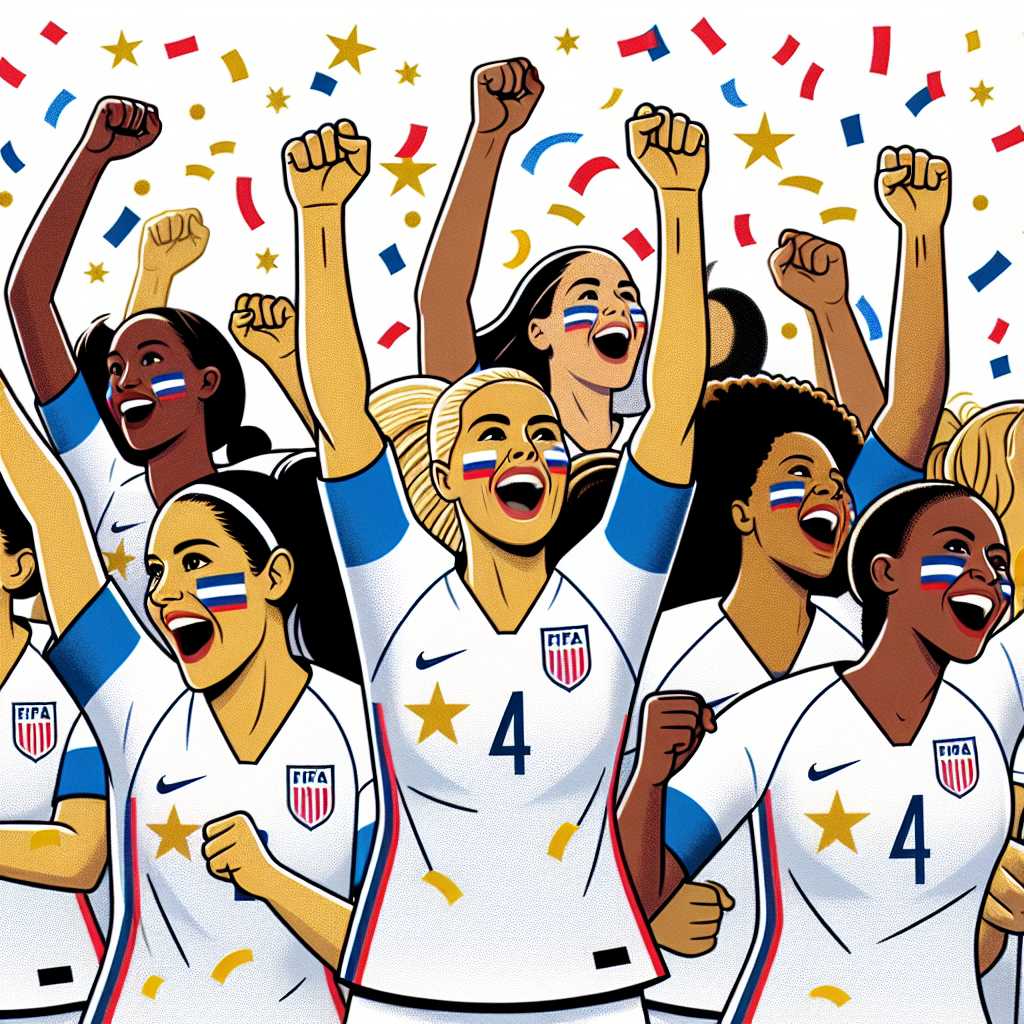United States Women’s National Soccer Team: A Pillar of Success in Women’s Football
The United States Women’s National Soccer Team (USWNT) has established itself as a dominant force within the world of women’s soccer. Their journey, marked by monumental victories, influential players, and significant challenges, makes for an inspiring narrative that mirrors social and cultural transformations within the sporting domain. This article provides a comprehensive look at the team’s history, achievements, notable players, challenges faced, its influence on women’s soccer globally, and its current status.
History and Establishing a National Presence
The USWNT played its first official international match on August 18, 1985, against Italy. Since then, the team has participated in numerous international tournaments with a particularly impressive track record in the FIFA Women’s World Cup and the Olympic Games. In 1991, they lifted their first World Cup trophy in China, marking the start of an ascendant trajectory that solidified the team as frontrunners in international women’s soccer.
Record of Achievements
The USWNT is one of the most decorated teams in international women’s football. Their cabinet of accolades includes four FIFA Women’s World Cup titles (1991, 1999, 2015, and 2019), making them the most successful team in Women’s World Cup history. Additionally, they have achieved four Olympic gold medals (1996, 2004, 2008, and 2012), numerous CONCACAF Gold Cups, and several other international tournament wins.
Their record extends beyond trophies; they have set benchmarks for consecutive wins and unbeaten records that push boundaries within the realm of sport. Their remarkable consistency at the highest levels of competition underscores their profound impact on the standard of women’s football worldwide.
Prominent Players and Influence on the Sport
The USWDT has seen numerous players become household names and icons in their own right. These individuals not only excelled on the field but also helped raise the profile of women’s soccer globally. Players like Mia Hamm, Abby Wambach, Julie Foudy, Michelle Akers, and Hope Solo set records and won individual accolades that showcased their talents to a global audience. More recently, Megan Rapinoe, Alex Morgan, and Carli Lloyd are among those who continued this legacy by demonstrating exceptional skill and leadership.
Notable among these personalities are trailblazers off the field as well—Megan Rapinoe’s advocacy for LGBTQ+ rights and equal pay is noteworthy as it positions sports figures as critical actors within wider societal dialogues. Abby Wambach’s accomplishment as the world’s all-time leading scorer (male or female) until surpassed by Canada’s Christine Sinclair emphasizes athletic excellence irrespective of gender.
Challenges Faced: Battling Inequality
Despite their achievements on the pitch, the USWNT has had to face significant challenges off it. Chief among these has been their ongoing struggle for equal pay and equal treatment relative to their male counterparts. This signifies an alarming disparity in sports where even top-performing female athletes are benchmarked against men monetarily and provisionally.
The team has engaged in high-profile legal disputes to combat this inequality. A lawsuit filed by prominent team members in 2019 against the United States Soccer Federation highlighted disparities in wages and working conditions compared to the men’s team. Although grappling with institutional barriers has been challenging, victory in these areas could lead to far-reaching changes beyond football.
Global Influence
USWNT’s success extends beyond championships; they have catalyzed interest and investment in women’s soccer globally. Their victories provided momentum for establishing professional leagues such as the National Women’s Soccer League (NWSI) in the US and encouraged younger generations of girls to pursue soccer professionally.
The respect accorded to their accomplishments led to amplified discussions regarding gender equity in sport and inspired athletes internationally to contest societal norms – creating not only better standards within their disciplines but making strides for female empowerment globally.
Current Status: Sustaining Dominance
Entering contemporary matches and tournaments, USWNT remains a formidable competitor sustained by a blend of experienced stalwarts and rising new talents. The team continuously manages to adapt their game strategically with inherent agility to uphold its illustrious status. As international women’s football becomes progressively competitive, USWNT confronts new challengers while upholding its heritage as a leading protagonist on the sports stage.
Notes
Image description: The emblematic image shows members of the USWNT celebrating with their iconic four stars above their crest – representing their FIFA World Cup championships – while confetti rains down upon them during a festive victory ceremony.
